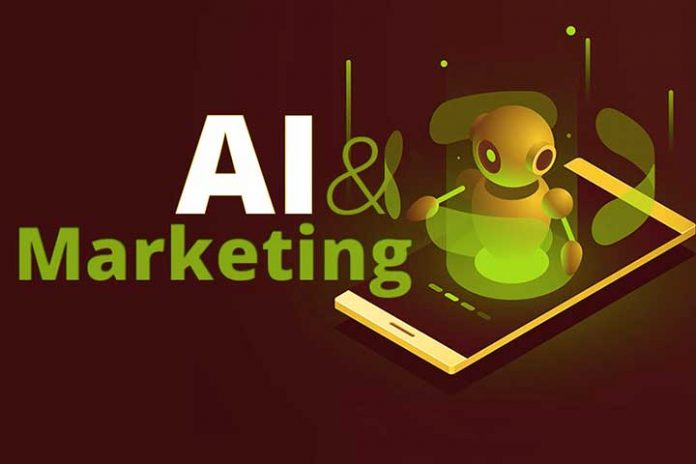Discover how it is possible to apply AI Marketing to various business sectors to obtain a master formula between Marketing and Technology.
The combination of artificial intelligence and marketing is proving very beneficial for companies. By using AI solutions, companies can offer a better user experience to their customers. With AI, companies can more easily adapt to the needs of each customer. This will help businesses generate more revenue and provide a better experience for their customers.
Artificial intelligence as a starting point
This is a system or machine’s ability to reproduce how we humans think. But not to replace us: to improve our comfort and our environment, increase our capabilities or eliminate the repetitive tasks that we face daily.
Artificial intelligence should be considered a tool whose main objective is to analyze, automate, optimize and predict. There is no need to be afraid of it or see it as something out of the imagination of Hollywood producers. Artificial intelligence is simply the logical continuation of the computer tool, its extension.
For example, in a Deloitte study published in 2018, 41% of companies surveyed saw automation, robotics, and artificial intelligence as “highly important topics.”
Improve the performance, profitability and competitiveness of your company
According to a report by Accenture*, “artificial intelligence has the potential to increase the profitability of companies in 16 sectors by an average of 38% by 2035”.
Of course, this prediction refers to companies that apply artificial intelligence successfully and in a “limited” number of activities (including “information and communication, manufacturing and financial services”).
In general, AI offers the ability to do more with less. In “labour-intensive sectors, such as wholesale or retail trade”, to give examples, their aim is primarily to support human labour. In other words, it becomes an extension of human capabilities. It allows people and companies to be more productive and profitable.
The business of tomorrow: Anticipate, predict risks and develop new lines
Being competitive today isn’t just about meeting customers’ needs; it’s about predicting what they’ll need tomorrow. It is about predicting their behaviour, opportunities and risks. COVID is proof that the world is unpredictable.
Artificial intelligence thus plays on the prediction board. Predict all possible scenarios, not necessarily to know what the next pandemic will be, what the future consumption patterns will be, what the following needs will be or what the competition will be. Artificial intelligence predicts future behaviour in the manner of trend scouts and style bureaus in fashion.
AI Marketing: The Evolution
Tech marketing still has a long way to go, but it is growing rapidly. Many companies are beginning to see the potential of AI Marketing and are starting to use it in their marketing strategies. However, some challenges still need to be overcome before AI can fully integrate into marketing.
One of the biggest challenges is data. For AI to be effective, it needs large amounts of data. This data can be challenging to obtain and can be expensive to store and process.
Another challenge is the lack of understanding of how AI works. Many marketers are unfamiliar with this environment and how it can be used in marketing. This lack of knowledge can make it difficult.
For AI to be effective, it needs large amounts of data. This data can be difficult to obtain and expensive to store and process.
Artificial Intelligence for Banking
The banking sector is one of the sectors that has benefited the most from the inclusion of AI in its institutions. The main advantages are related to customer service, specifically in areas such as fraud detection or loan approval.
In detecting fraudulent behaviour, AI can identify patterns humans cannot see.
Do you want to know more applications? Artificial intelligence for companies
Artificial Intelligence for Retail
On the other hand, another of the impact sectors is retail. The use of intelligence is becoming more common in the retail sector. This is because it can help retailers personalize each customer’s shopping experience.
Examples of this improvement applied to digital signage are digital totems, Lift & Learn & Buy or video walls. Solutions are increasingly implanted in large surfaces.
Digital signage is AI that helps retailers personalize each customer’s shopping experience. With digital signage, merchants can display products that customers may be interested in based on their previous purchase history or other demographic data.
Artificial intelligence online
All those online business models also have their place, and not all solutions are for the physical point of sale.
Do you know about chatbots?
Chatbots are computer programs that simulate a human conversation. They are commonly used to provide customer service or assistance. Chatbots can be used to answer simple questions, like product recommendations, or complex questions, like troubleshooting tips.
Some chatbots use artificial intelligence to understand the user’s question and provide a more accurate answer. This is where this technology is gaining strength.
But not only there, can you imagine that web pages can offer you one product or another depending on the profile? Don’t imagine it; apply it. Solutions for dynamic product recommendation already exist.

